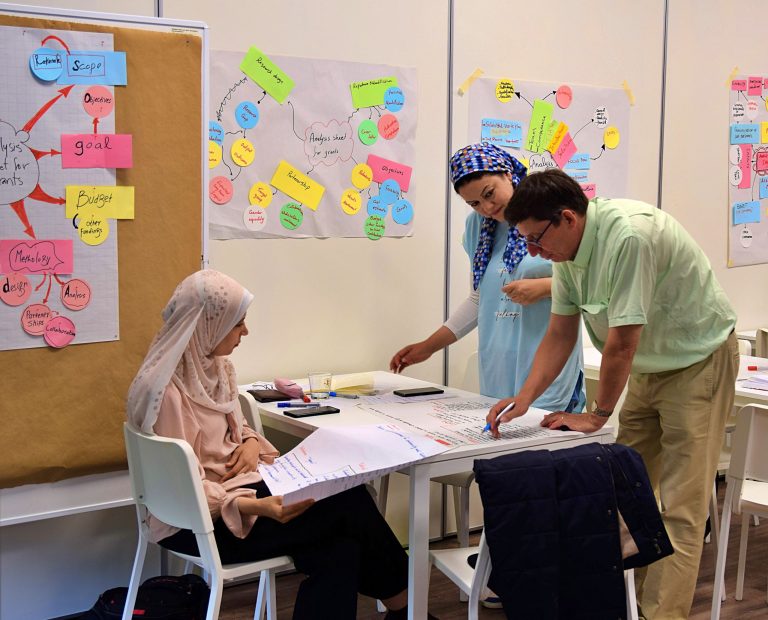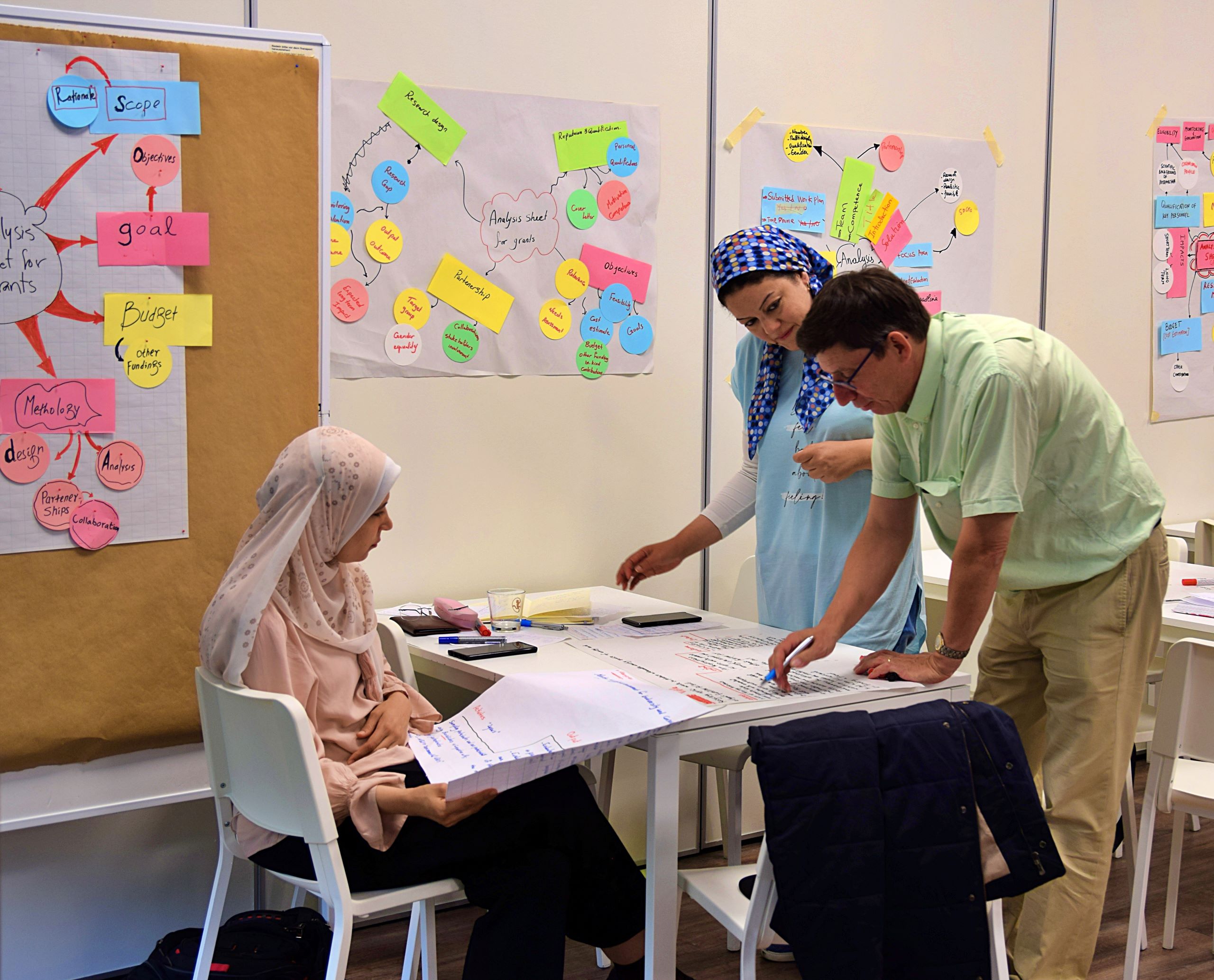6
Universities supported
250
Technical staff trained

The agricultural sector in Iraq provides 20% of the country’s total employment. Climate change, desertification, salinization and poor water management jeopardize the sector’s stability. Political challenges and issues in the education system exacerbate this. Educational institutions struggle to provide the knowledge and research to sustainably manage water. Curricula also emphasise theory rather than practical activities and internships. As a result, graduates are less employable and lack entrepreneurial skills. Women are particularly effected because they make up a large proportion of the work force in rural areas.
This project responded need to build skills in efficient water management and climate smart agriculture. Iraq needs a new generation of skilled, entrepreneurial graduates. Young agri-food professionals need to be able to meet the need of the labour market. We worked with six Iraqi universities to start building practical skills into curricula. We also provided training to improve the universities’ teaching and research methodologies. By delivering targeted training we supported minority groups and women. We also guided the universities to design and implement institutional gender inclusivity policies
With iCRA’s support, the project’s main achievements included:
-
Staff developed their pedagogical skills and implemented more practical teaching methods.
-
The universities adopted a research process based around solving real-world problems. To do this they collaborate other stakeholders, such as producers and companies.
-
The universities developed and approved gender equality plans. These include practical steps for strategic change and the establishment of gender committees chaired by the universities’ presidents.
The project also provided technical training in climate smart agriculture and efficient water management to 250 students and staff from the six universities. University staff were equipped with the skills to deliver training on these subjects to local agribusinesses, extension services and farmers. To support this, the project and improved each university’s training facilities.
Location(s)
Timeline
2019 - 2022
Category
Agri-education
Key theme(s)
Practice-based learning, Revising curricula, Action research, Climate smart agriculture, Efficient water management
Partners
Wageningen University & Research, Delft Institute for Water Education, Salahaddin University, Mosul University, Anbar University, Kufa University, Karbala University, Basrah University
“I am now applying a more student-focused way of teaching, which enables students to become more independent and practical.”


